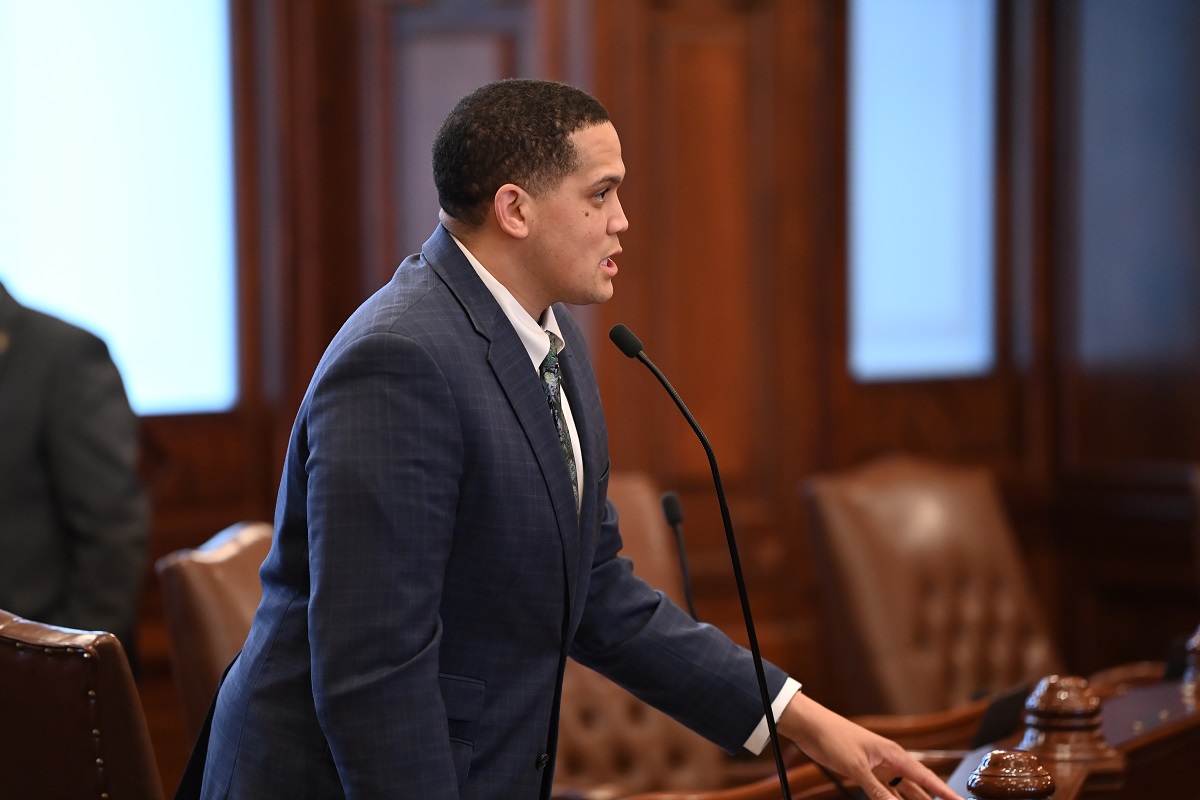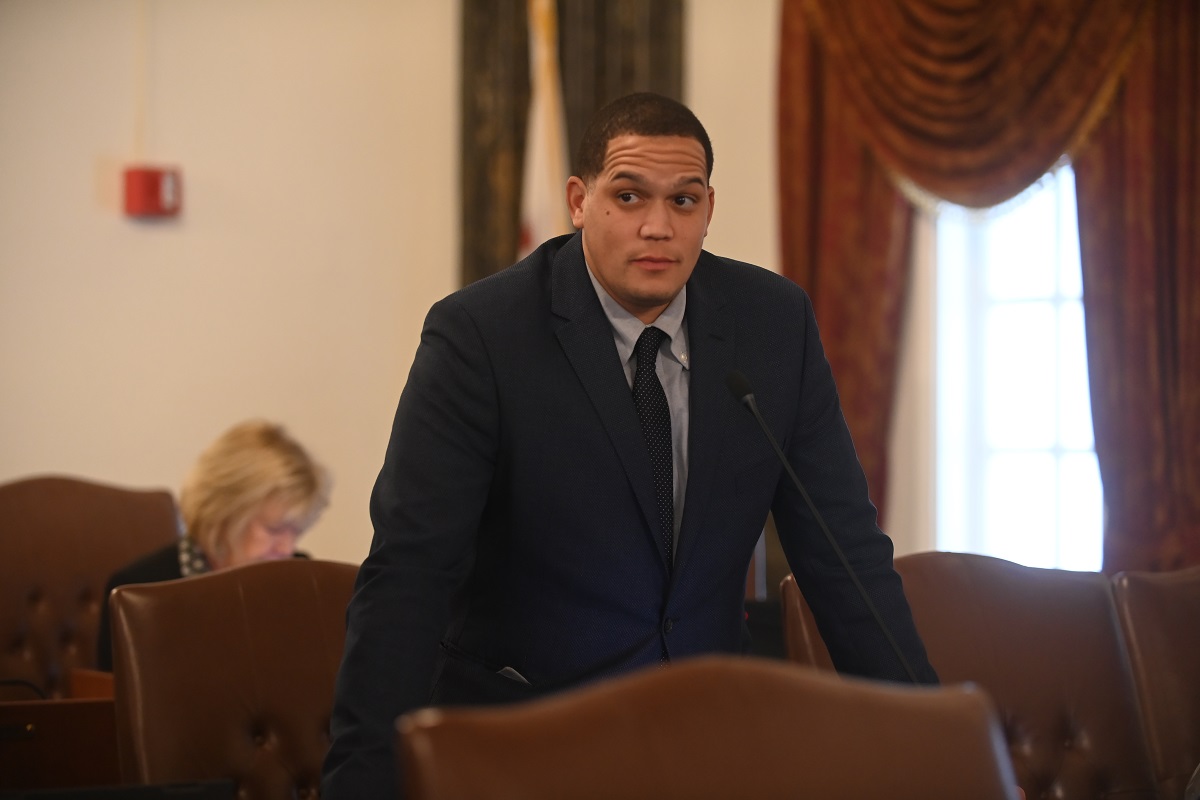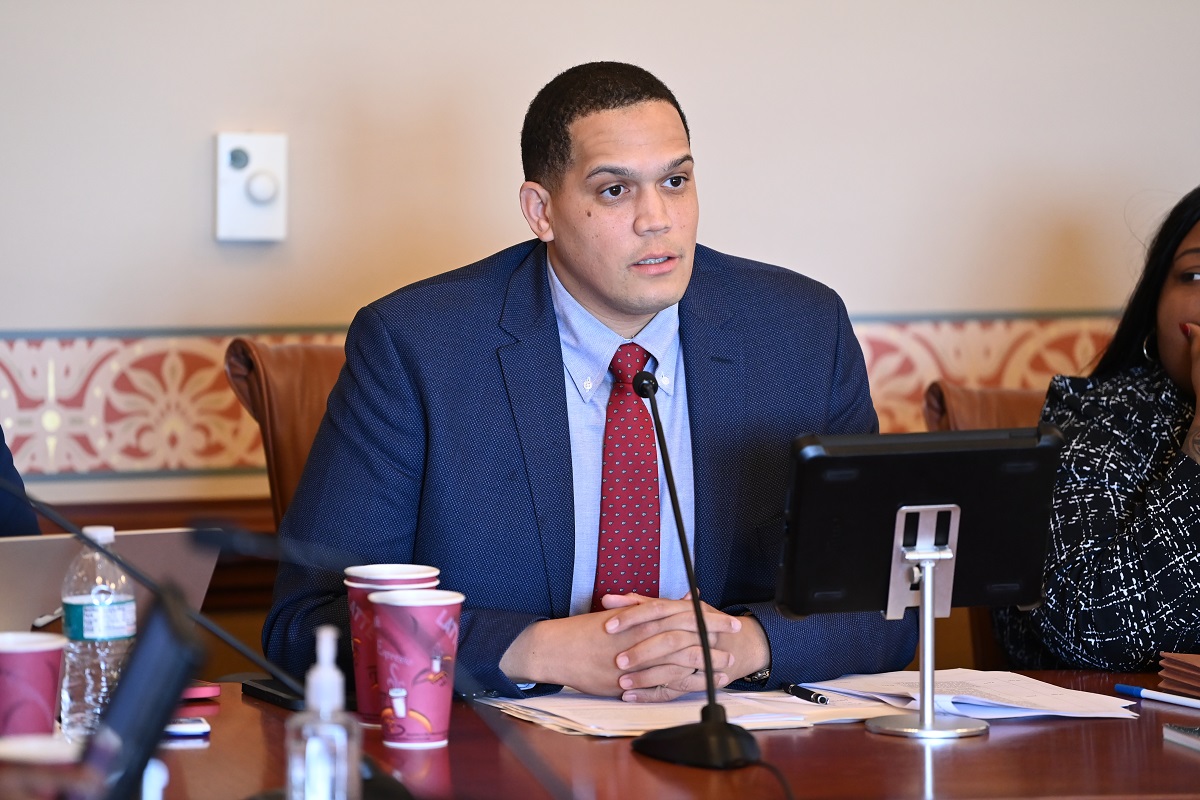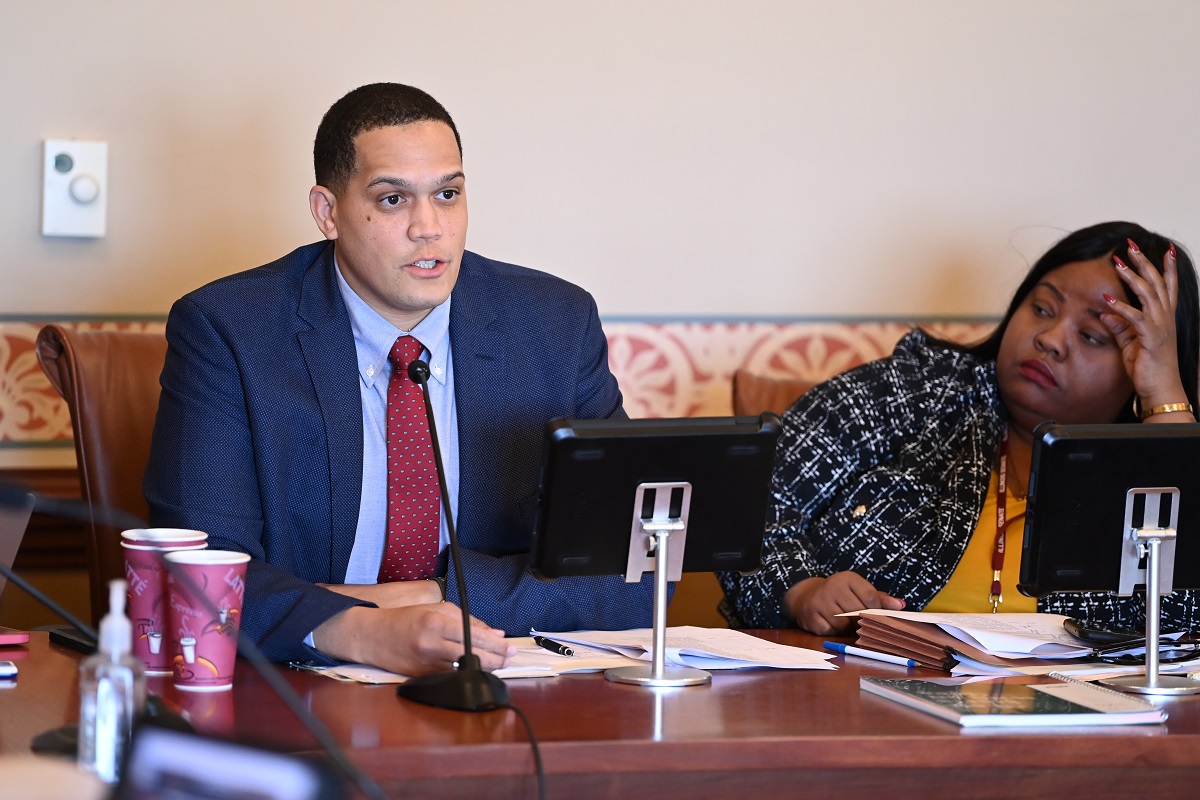Peters’ bill ensures smarter penalties for nurse agencies, stronger protections for patients
- Details
- Category: Press Releases
 SPRINGFIELD — Illinois patients and health care workers could soon see a fairer, more effective oversight system for nurse agencies, thanks to a measure led by State Senator Robert Peters.
SPRINGFIELD — Illinois patients and health care workers could soon see a fairer, more effective oversight system for nurse agencies, thanks to a measure led by State Senator Robert Peters.
“This isn’t just about fairness – it’s about common sense,” said Peters (D-Chicago). “This measure will help us focus enforcement where it’s truly needed, making our health care system safer and more effective for everyone.”
The Nursing Agency Licensing Act sets guidelines to ensure nurse agencies meet certain operational standards and holds them responsible for the actions of the nurses they dispatch to health care facilities. Currently, Illinois law imposes a flat $10,000 fine for every violation of NALA, only targeting licensees or applicants. These guidelines do not account for the severity of the violation, meaning minor mistakes can result in the same financial punishment as more serious issues.
Under Peters’ measure, the scope of accountability would be expanded, holding all violators accountable and making penalties more proportional to the violation. This would improve patient safety and ensure nurse agencies can operate effectively without fear of disproportionate fines, creating a fairer system that is better equipped to protect the public and the health care professionals who serve them.
“By making penalties fit the violation, we can crack down on serious issues while making sure agencies aren’t crushed by excessive fines for small errors,” said Peters. “This means better care for patients and a stronger health care system overall.”
Senate Bill 67 passed the Senate Thursday and awaits further consideration.
Peters law to increase transparency in solitary confinement practices
- Details
- Category: Press Releases
 SPRINGFIELD — A new law championed by State Senator Robert Peters will shed light on the use of restrictive housing, requiring the Illinois Department of Corrections to collect and publicly share data on how often and why people are placed in solitary confinement.
SPRINGFIELD — A new law championed by State Senator Robert Peters will shed light on the use of restrictive housing, requiring the Illinois Department of Corrections to collect and publicly share data on how often and why people are placed in solitary confinement.
“For too long, solitary confinement has existed in the shadows, with little public insight into its use and impact,” said Peters (D-Chicago). “Thanks to this law, we can now hold our system accountable and work toward meaningful reforms that prioritize the well-being of those in custody.”
“Restrictive housing” is another phrase for solitary confinement – a form of housing that separates an individual in custody from the general population. The law responds to growing concerns about the lack of publicly available data on solitary confinement practices in state facilities. Recent surveys conducted by the John Howard Association found that 42% of incarcerated individuals reported spending excess time in their cells, often not meeting the daily required minimum of two hours outside their sleeping area.
Under Peters’ law, IDOC will be required to publish quarterly reports online detailing general trends, including demographic information, lengths of confinement, incidents of self-harm and access to health care in restrictive housing units.
“This law is a victory for transparency, accountability and human dignity,” said Peters. “By shedding light on solitary confinement practices, we’re taking a crucial step toward ensuring our institutions operate with fairness and oversight.”
House Bill 4828 was signed into law Friday.
Peters’ legislation aims to strengthen, sustain state’s violence prevention efforts
- Details
- Category: Press Releases
 SPRINGFIELD — Community violence prevention programs save lives, but to be effective, they need long-term support and flexibility. Thanks to a new measure from State Senator Robert Peters, efforts to curb firearm violence in the state would hold strong by giving organizations more time to access critical resources and improving the way the state coordinates its response.
SPRINGFIELD — Community violence prevention programs save lives, but to be effective, they need long-term support and flexibility. Thanks to a new measure from State Senator Robert Peters, efforts to curb firearm violence in the state would hold strong by giving organizations more time to access critical resources and improving the way the state coordinates its response.
“Gun violence is a public health crisis, and we need to give our communities the tools to fight it effectively,” said Peters (D-Chicago). “This bill strengthens the support system for violence prevention programs, making sure they can access funding, training and resources without unnecessary barriers.”
Peters’ measure would make several updates to Illinois’ approach to violence prevention. First, it would allow the Office of Firearm Violence Prevention to submit its annual report on an ongoing basis, rather than being locked into a rigid deadline, ensuring lawmakers and communities receive the most relevant data. It would also extend the filing deadline for non-Medicaid-certified Reimagine Public Safety Act grantees that provide behavioral health services, giving them additional time to obtain certification. Additionally, it would delay the awarding of grants by one year, giving applicants time to establish services that are vital for long-term success.
For frontline organizations working to prevent violence, the measure would allow more stability and a stronger foundation to continue their life-saving work. By removing unnecessary hurdles and making sure support reaches the communities that need it most, Peters’ initiative would help Illinois’ most vulnerable neighborhoods have the resources to reduce violence and build safer futures.
“Investing in violence prevention is investing in our communities,” said Peters. “Giving these programs the flexibility and support they need ensures real change happens – not just today, but for years to come.”
Senate Bill 2280 passed the Senate State Government Committee Wednesday.
Peters’ initiative to strengthen state’s mental health services
- Details
- Category: Press Releases
 SPRINGFIELD — Illinois could reshape the way agencies respond to mental health crises and offer critical services to those in need, thanks to a new measure from State Senator Robert Peters that would ensure better coordination, training and accountability in the delivery of behavioral health services.
SPRINGFIELD — Illinois could reshape the way agencies respond to mental health crises and offer critical services to those in need, thanks to a new measure from State Senator Robert Peters that would ensure better coordination, training and accountability in the delivery of behavioral health services.
“We must meet the growing mental health needs of our communities by providing the necessary resources, training and structure to ensure every individual in crisis gets the help they deserve,” said Peters (D-Chicago). “This is about keeping people safe and providing them with the right support when they need it most.”
Under Peters’ measure, the implementation deadline of the Community Emergency Services and Support Act would be extended until July 1, 2027, ensuring a more thorough and thoughtful rollout of critical services. The initiative comes at a time when mental health services are under increasing strain, with more people experiencing mental health crises and a heightened demand for accessible care.
In addition to providing a clear roadmap for CESSA implementation, the bill would require new training for mobile mental health relief teams and an updated data collection structure, transforming how mental health emergencies are handled and offering a strong framework for individuals in crisis and the organizations that serve them.
“By extending CESSA’s timeline and enhancing its scope, we are creating a system that holds providers accountable while certifying people in crisis are met with professional care and support,” said Peters. “Senate Bill 2500 is a major step in making our state a model for compassionate, effective and efficient mental health care.”
Senate Bill 2500 passed the Senate Health and Human Services Committee Tuesday.
More Articles …
Page 14 of 95





